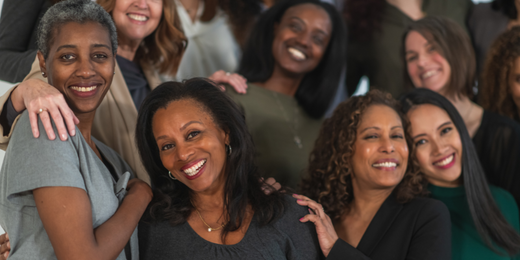Celebrating Women Who Redefined Beauty.
The relationship between Black women and their hair is more than just a beauty conversation—it’s a powerful narrative of identity, resistance, and self-expression. Our hair is political, cultural, and deeply personal. It tells the story of who we are, where we come from, and how we choose to navigate the world.
Yet, for far too long, Black hair has been scrutinised, policed, and even deemed “unprofessional.” From corporate boardrooms to classrooms and even the entertainment industry, the pressure to conform to Eurocentric beauty standards has been both exhausting and unjust.
But despite it all, Black women have stood firm, reclaiming their beauty, embracing their roots, and changing the narrative—one bold step at a time. This International Women’s Day, we’re honouring the trailblazing women who have shattered ceilings, faced criticism, and stood tall in their authenticity, proving that our hair is not a limitation but a crown of power.
1. Cicely Tyson: The Hollywood Icon Who Refused to Conform
Long before natural hair movements took over social media, Cicely Tyson was already setting the standard for embracing Black beauty. In the 1970s, when straightened hair was still considered the norm in Hollywood, she fearlessly rocked an afro—a decision that wasn’t just about aesthetics but about representation and self-respect.
She once said, “I wear my hair like this because I want to be a beacon for the beauty of Black women.” And she was exactly that—a beacon. In an industry that constantly tried to erase natural Black beauty, Tyson paved the way for future generations of Black actresses to show up as themselves. Now, every time a Black woman walks into a workplace, audition, or event with her natural curls, braids, or locs, she is continuing the legacy that women like Cicely started.
2. Simone Biles: Dominating the Olympics & Defying Eurocentric Beauty Standards
Simone Biles is the most decorated gymnast in history, yet some people were more focused on how neat hair hair looks and edges than her record-breaking achievements. Ridiculous, right?
At the height of her fame, Biles faced harsh criticism over her natural hair—because apparently, winning Olympic gold wasn’t enough unless she also had a salon-fresh blowout. But instead of shrinking under the pressure, she responded with grace, saying, "I used to worry about my hair being considered unprofessional, but I’m no longer embarrassed. I’m learning to love my hair and the styles I can do."
Biles's impact reminds us that we don’t owe anyone “polished” perfection—our achievements, strength, and presence speak for themselves.
3. Zozibini Tunzi: Redefining Beauty Standards on a Global Stage
When Zozibini Tunzi won Miss Universe 2019, she did it while proudly wearing her short, natural hair. She was the first Black South African woman to win the title, and her victory was a direct challenge to long-standing beauty norms that had ignored or excluded Black women.
“I grew up in a world where women like me, with my kind of skin and my kind of hair, were never considered beautiful.”
Her win wasn’t just about a crown; it was about shifting global beauty standards and reminding Black women everywhere that they are enough just as they are. From boardrooms to beauty campaigns, natural Black beauty is no longer a quiet act of rebellion—it’s a bold statement of self-love.

4. Mae Jemison: The First Black Woman in Space, Braids and All
Dr. Mae Jemison was the first Black woman to travel to space, and while her scientific achievements are out of this world, her afro made a statement of their own. In an era where professionalism was (and often still is) tied to Eurocentric aesthetics, Jemison’s decision to wear an afro in all it's glory on her historic mission was a quiet but powerful act of self-affirmation.
Jemison’s story reminds us that we can exist in any space—corporate, scientific, creative—without altering who we are. Your knowledge, skills, and expertise should always speak louder than outdated beauty standards.
5. Viola Davis: The Power of Reclaiming Natural Hair
We all remember the moment in How to Get Away with Murder when Viola Davis removed her wig on-screen, revealing her natural hair. It was raw, real, and deeply personal.
For years, Davis had felt pressured to wear wigs in Hollywood, but one day, she made the decision to fully embrace her natural beauty. She later shared, “I felt like I was hiding behind wigs. When I embraced my natural hair, I embraced myself.”
Viola Davis' journey is one so many Black women can relate to—the struggle between fitting in and standing out, between societal expectations and self-acceptance. Her story teaches us that embracing your natural hair is about more than aesthetics—it’s about stepping into your power.
These women didn’t just wear their hair—they owned it, despite criticism and outdated expectations. They proved that our beauty doesn’t need to be validated to be real.
And today, we carry that legacy forward.
The journey to true hair love and acceptance isn’t without its challenges. The fear of judgment still lingers, and societal beauty standards still try to dictate what’s “acceptable.” But if these women have taught us anything, it’s that authenticity is power.
💡 We deserve to wear our hair however we choose—without apology, without compromise.
So, whether you’re rocking an afro, locs, box braids, or keeping it cute under a TTAT Shower Cap on your self-care days, own your crown with pride!






